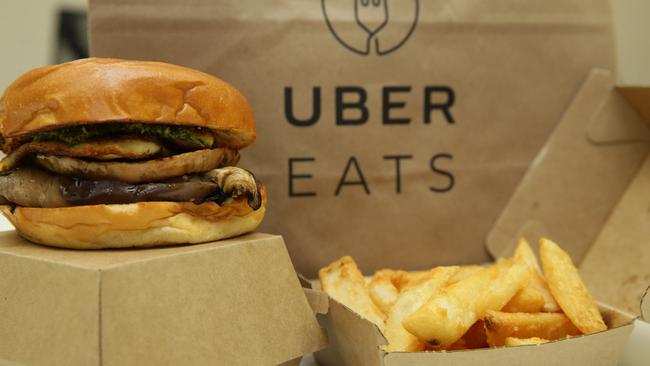Tom Elliott on crime in Australia and how New York approach worked
AUSTRALIA is a soft society that too often finds excuses for bad behaviour. As a result brazen gang members offend at will without fear of retribution, writes Tom Elliott.
Tom Elliott
Don't miss out on the headlines from Tom Elliott. Followed categories will be added to My News.
- Youth Crime Summit: ‘Youths say it's easier to steal than earn’
- Moomba thug now alleged carjacker
- Syndicates recruit Melbourne teens for violent crime sprees
- Refugee parents send kids back to Africa to escape crime scourge
- Baseball bats in short supply as terrified residents take up arms
- Police shift focus to help runaways
AUSTRALIA is a soft and permissive society that too often finds excuses for bad behaviour.
As a result we are now living through a crime wave in which brazen gang members offend at will without fear of retribution.
Until we decide to crack down on illegal conduct, cars will continue to be stolen, suburban homes will be invaded and innocent kids will suffer nightmares from violent aggression.
People obey laws for two main reasons: Respect and fear.
Respect emanates from the simple understanding that institutions like family, school and the law are there to protect and nurture us. We respect our parents because they brought us into the world, hopefully love us unconditionally and as adults demonstrate the correct way for children to behave.
School is another place where children defer to their elders. Educators teach, while younger people learn. This is why in decades past students always referred to teachers as “Mr”, “Mrs” or “Miss”. The current trend towards adult first name usage by kids is a retrograde step.
And we respect the law — both police who enforce it, and courts that judge offenders — because rules represent the often thin line between civilisation and anarchy.
In the absence of respect, fear takes over. A potential criminal might hate the police; but because he or she fears arrest, followed by a likely stretch in prison, laws are generally obeyed.
It’s clear that the gangs of youths currently terrorising Melbourne possess neither respect nor fear. They operate with impunity, smashing windows, kicking down doors and stealing cars to their demented hearts’ content. And you know what? Such behaviour is not entirely the gang members’ fault. Our permissive 21st Century society fails to emphasise that law-breaking results in serious consequences.
Let’s consider some examples.
First, retiring the strap was a bad idea. From the mid-1970s onwards, corporal punishment was banned first at school and then in the home. According to well-meaning child psychologists, smacking children is a form of abuse that should be outlawed.

What nonsense. Parents should smack their children when bad behaviour warrants it. And teachers — who adopt the parenting role when students appear in class — should also have the right to use physical chastisement when necessary. In 1974 I was caned at school for throwing stones at other kids. The whacks I received from the headmaster were both painful and humiliating. But they caused no lasting damage and taught me a lesson: To this day I’ve never again hurled rocks at anyone.
Second, we have a tendency to overlook minor criminal actions in an effort to avoid physical confrontation. Apparently this occurs all the time with Myki infringements. According to two ticket inspectors who contacted me, aggressive gangs who hurdle turnstiles rather than pay their fares are ignored by the authorities in favour of “safety first”.
What message is sent by this overly tolerant Public Transport Victoria policy? That breaches of the law — albeit minor ones — have no consequences. Is it any surprise when small time fare evaders move on to more serious crimes?
Third, some aspects of police enforcement defy logic. If I drive my car 10km/h over the speed limit, I’ll be stopped by a patrol vehicle and issued with a hefty fine and a handful of demerit points. Fair enough. Speed limits are there for a reason, and instant and consistent enforcement of them is the price we all pay to use the roads.
Unless you’re a high speed hoon, of course. More than a year ago, Victoria Police decided to revise its pursuit policy. As a result, offenders who drive dangerously at 80-100 km/h over the limit are let go on the grounds of — you guessed it — safety first. Again it’s no surprise that an increasing number of hoons now choose to brazenly defy the police and speed through our suburbs.
Finally, often our courts are guilty of soft sentencing. Take Damien Mantach, the disgraced ex director of the Victorian Liberal Party. Because he defrauded the Libs of $1.55m, he’s been sentenced to five years in jail with a two-year-and-eight-month minimum. Again, fair enough. White-collar crime is serious, and a message must be sent to business and political leaders that theft is theft.
Yet what about the teenage gang members currently terrorising innocent families in their own driveways and homes? Will these young offenders receive similar five year jail terms?
MOOMBA THUG NOW ALLEGED CARJACKER
Not on your life. Those from refugee backgrounds will use their hard childhoods overseas as an excuse for violent behaviour in the “safe” country — Australia — that’s taken them in. Others will argue — via their publicly-funded barristers — that at the tender young ages of just 14 or 15, they cannot possibly be tried and punished as adults, irrespective of the serious offences with which they’re charged.
The likely result? Lots of community corrections orders, accompanied by the odd stint in a juvenile detention facility. No harsh lessons learnt. And so the cycle of reoffending will continue.
If we genuinely want to reduce youth crime, we must crack down hard on serious offenders. New York learnt this lesson to its very great benefit in the mid-1990s, with the result that Manhattan’s once mean streets are now amongst America’s safest. Why is it so hard for us to follow the Big Apple’s example?
Tom Elliott is drive time host on 3AW, weekdays, 3pm-6pm


